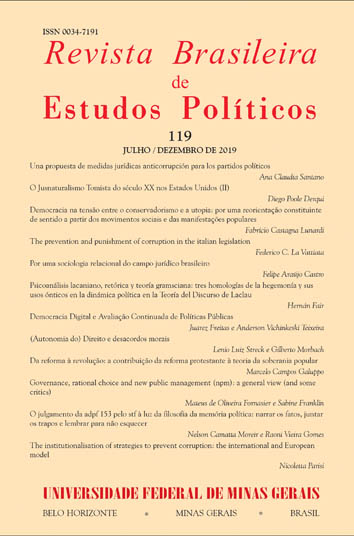The prevention and punishment of corruption in the Italian legislation
Resumo
This article aims to provide an overview of how the Italian legislation deals with corruption.
This starts with an analysis of the crimes provided for in the Criminal Code. In this regard, the three major offences are described that concern the phenomenon which is usually referred to as corruption (alias bribery) in comparative law: concussione, corruzione, and induzione indebita a dare o promettere utilità. The comparative analysis demonstrates that their distinction is not common.
Secondly, these crimes are grounds for establishing the (substantially criminal) liability of the legal persons, whose regulation is provided for in the Decreto Legislativo n. 231/2001.
Thirdly, the mission and the activity of the National Anti-Corruption Authority is described.
Finally, given that the Italian Republic is a Member State of the European Union, the Directive (EU) 2017/1371 on the fight against fraud to the Union's financial interests by means of criminal law is depicted. Indeed, among the crimes within the scope of the Directive, there are the figures of active and passive corruption.


